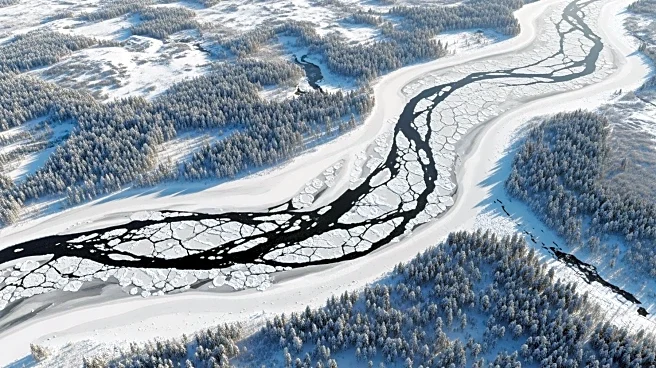Rapid Read • 8 min read
An international team of scientists, including researchers from USC Dornsife College, Caltech, and other institutions, has discovered that certain microbes form living electrical networks to consume methane, a potent greenhouse gas, from the ocean floor. This process involves a unique partnership between anaerobic methanotrophic archaea (ANME) and sulfate-reducing bacteria (SRB). While ANME break down methane, they release electrons that are transferred to SRB, which use sulfate as an electron acceptor to power their metabolism. This electron exchange forms a functioning electrical circuit, allowing these microbes to act as natural filters, reducing methane emissions into the atmosphere. The study, published in Science Advances, highlights the sophisticated ways in which these microorganisms influence planetary processes.
AD
The discovery of these microbial partnerships is significant as it reveals a natural mechanism for controlling methane emissions, a major contributor to climate change. By understanding how these microbes operate, scientists can explore new strategies to mitigate methane release in both natural and engineered environments. This research underscores the importance of microbial ecosystems in regulating greenhouse gases and offers insights into the evolutionary adaptations of life in extreme environments. The findings could lead to innovative approaches in environmental management and climate change mitigation, benefiting industries and policymakers focused on reducing carbon footprints.
Future research may focus on harnessing these microbial processes to develop engineered systems for methane mitigation. Scientists could explore the potential for scaling up these natural filtration systems to address methane emissions from industrial sources. Additionally, further studies might investigate the broader ecological roles of these microbes and their interactions with other environmental factors. Collaboration between environmental scientists, engineers, and policymakers will be crucial in translating these findings into practical applications for climate change mitigation.
This discovery highlights the complexity and interdependence of microbial ecosystems and their impact on global environmental processes. It raises ethical and scientific questions about the manipulation of natural systems for human benefit. Understanding these microbial interactions could lead to a deeper appreciation of the unseen forces that shape our planet's climate and ecosystems, prompting a reevaluation of how we approach environmental conservation and sustainability.
AD
More Stories You Might Enjoy











